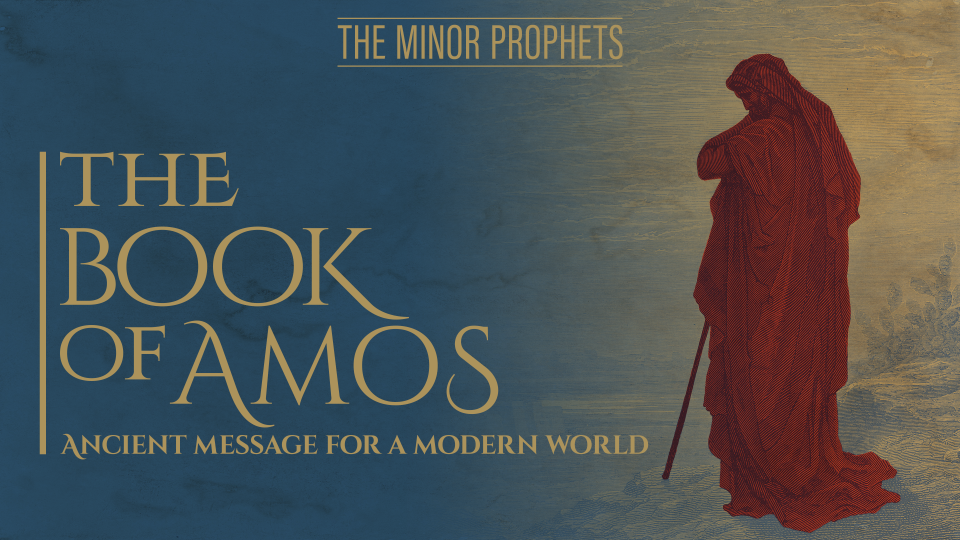Amos
עָמוֹס
"load, burden"
This name has the same form as the unattested qal infinitive absolute of the verb עָמַס which means, "to load, to carry a load."

Used with permission. ©2021 United Church of God, an International Association. https://www.ucg.org/beyond-today/beyond-today-bible-study/the-minor-prophets
Introduction
The Book of Amos is the third of the Twelve Minor Prophets in the Tanakh and the second in the Greek Septuagint tradition.Amos, an older contemporary of Hosea and Isaiah, was active c. 750 BC during the reign of Jeroboam II (788–747 BC), making Amos the first prophetic book of the Bible to be written.
Author
Amos lived in the kingdom of Judah but preached in the northern kingdom of Israel. His major themes of social justice, God's omnipotence, and divine judgment became staples of prophecy.
Structure
Oracles against the nations (1.3–2.6)
Addresses to groups in IsraelWomen of Samaria (4.1–3)
Rich persons in Samaria (6.1–7)
Rich persons in Jerusalem (8.4–8)
Five symbolic visions of God's judgment on Israel, interrupted by a confrontation between Amos and his listeners at Bethel (7.10–17):
Locusts (7.1–3)
Fire (7.4–6)
A plumb line (7.7–9)
A basket of fruit (8.1–3)
God beside the altar (9.1–8a)
Epilogue 9:8b–15
The rest of this comprehensive Wikipedia article on the book can be read here.
An extract from BHFA Volume 5
Amos 4:11a
הָפַכְתִּי בָכֶם
some of you I have overthrown
KJB I have overthrown some of you, as God overthrew Sodom and Gomorrah,
NASB "I overthrew you, as God overthrew Sodom and Gomorrah,
ESV “I overthrew some of you, as when God overthrew Sodom and Gomorrah,
NLT “I destroyed some of your cities, as I destroyed Sodom and Gomorrah.
NIV "I overthrew some of you as I overthrew Sodom and Gomorrah.